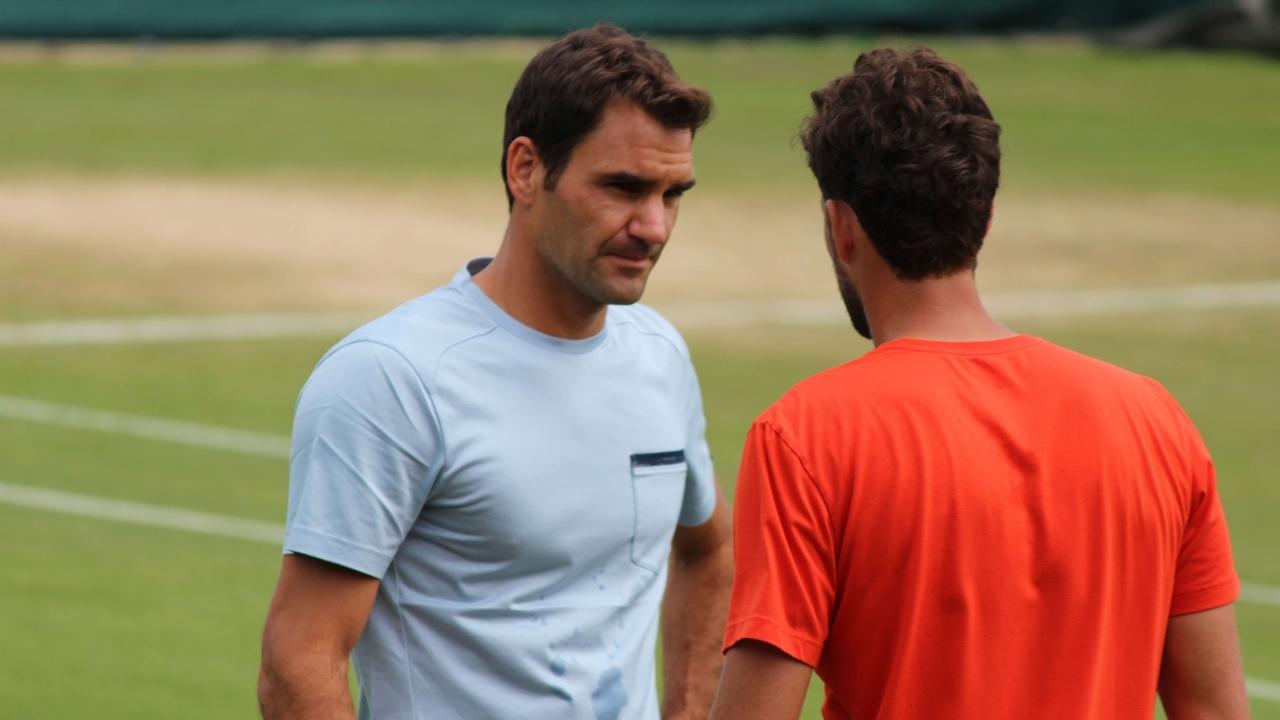Prepare Or Not To Prepare For A Tennis Match
Jun 27, 2017
Having yourself physically and mentally ready can be just the start of good preparation for practice, a match, or tournament season.
Read on to find out how to get athletes ready to go........
We've helped 100s of players prepare for tennis matches, junior tournaments through to grand slams. In our opinion, the preparation should be no different for a junior to a pro athlete.
Learning to get things right at a young age is very important and creating the habits of being organised, punctual, and responsible will have long-term positive results for anyone.
The other day I had a young player I train tell me they felt dizzy, I asked him when he ate last he said, at 1.15 pm, and it was 5.30 pm. His blood sugar levels were obviously low, I said to him you need to eat at least 1.5hrs before coming to training, he turned and looked at his mum and said, "mum you need to remember that!" His mum said ok, so what should he eat before coming.
I said wait a moment, his 14, fit and able, he can prepare his snacks for tennis training. I told him he was responsible for that from now on, he was shocked, long term he will be thankful.
He then asked me 'so what should I be preparing' and so his journey of preparation and responsibility began. If we are not teaching young players to be prepared, organized, and responsible then who will, definitively not themselves, they don’t know, how, what, and when.
Get the right information from the right people and then make sure the young player understands their responsibilities, monitor it, and get help if needed (initially).
We will give you one piece of advice; if a young player has a chance of making it, they will need to get themselves organized and prepared, otherwise they will drop off.
Don't do things for them, it is a key early indicator that young players have the passion for reaching their potential when they do what has to.
In our years of being specific tennis trainers (15 years), I have never seen a more professional, organized, and prepared athlete than Lleyton Hewitt. It has helped him stay at the top of his game for over a decade, allowed him to conquer injuries, and has given him the ability to be open to learn and make himself better.
The detail and thought he puts into his daily, weekly, and yearly tennis preparation is amazing. He knows the role of his team members and communicates effectively with everyone. He leaves nothing to chance or the last minute. This is the exact attitude we need to encourage young athletes to adopt.
By starting out with easy tasks and responsibilities, they will develop self-confidence and learn a lot both themselves.
Although most of the time professional tennis players get dropped off, picked up, food prepared, beds made, etc. they didn't get to that point overnight. They spend years being prepared and ready leading into that point. By the time you reach the top you can afford to get others to do things for you, you have bigger things to get prepared for and other responsibilities to manage.
Being prepared, organized, and responsible are things we can all control. Don't be afraid to get young athletes doing things themselves, sure they may struggle and get things wrong (forget things, miss manage time, etc.) but they will get there. Parents, coaches, and tennis trainers should not feel guilty about getting players handling certain things themselves. In fact, it's the best thing you can do for them.
Giving young athlete independence and responsibility is liberating for them and a real confidence builder. Trust us, you will save you hours of time…the time that you can spend on other things for them.
Prepare Or Not To Prepare For A Tennis Match
Below are some benchmarks or standards we believe young athletes (12 and above) should be following.
1. Having their tennis equipment and playing/practice gear ready each and every day (if it needs replacing/washing they can discuss that with you). We would even recommend them learning to wash their own gear.
2. Preparing and packing snacks for pre and post tennis training/matches (muesli bars, fruit, cut-up vegetables, sandwich, etc.) this is easy for them to learn to do. They can communicate with whoever buys the food for the week what is needed and they can be responsible for there.
3. Hydration. Staying hydrated for young athletes is extremely important not only for their concentration and on-court performance but also for their health and well-being. Find some educational information on the importance of hydration and work out the correct amount of fluid intake for the individual and encourage them to manage it.
4. Time management is a big issue for young athletes. Being ready to go and being punctual is important for a few reasons;
a. People will be more tolerant of punctual and ready athletes because they won't feel disrespected.
b. It lets their team know they are eager and passionate, which motivates the team.
C. There will be less chance of the athlete feeling stressed or embarrassed because they are late or not ready, this can affect their motivation and performance.
d. They will be better prepared and able to get into the moment a lot more effectively when they are ready to go, which enables them to absorb more and do more.
Time management should be a high priority for young players. Encouraging them to manage their time and be ready is so important. We can't stress it enough. Letting them know that they are responsible for being ready to go (tennis equipment, snacks, hydration) at the car by a certain time sets the platform for their time ahead.
To be totally honest with you from our experience, if you lay a platform for preparation, responsibility, and organization for young athletes and they agree and understand how it is going to work. It is encouraged, then you will see if the young player has a chance of reaching their potential, the reason we say that is because their passion for the game and for improvement will be what overrides everything else. Setting them simple daily tasks and responsibilities will become something that will help get them closer to being their best and if they have the passion, they will absorb it and thrive.


